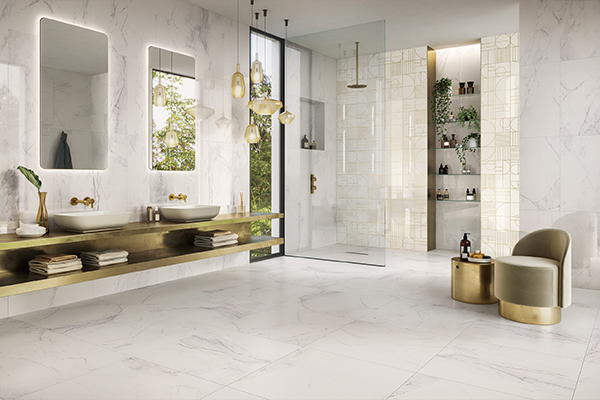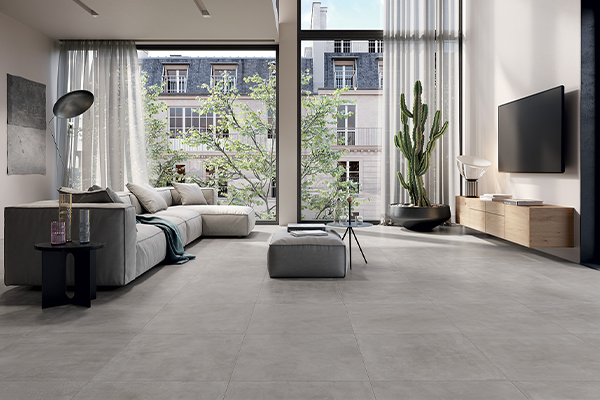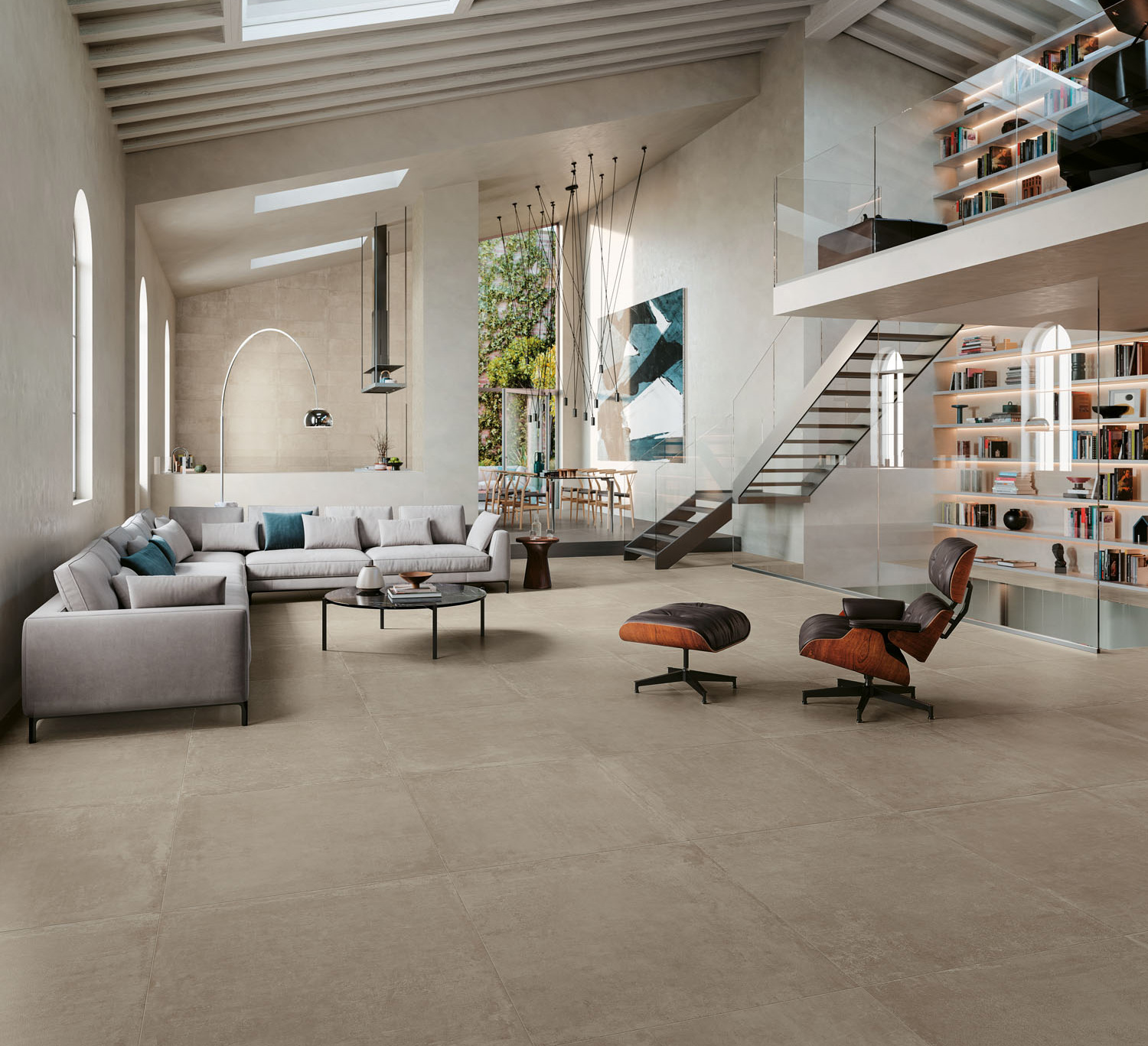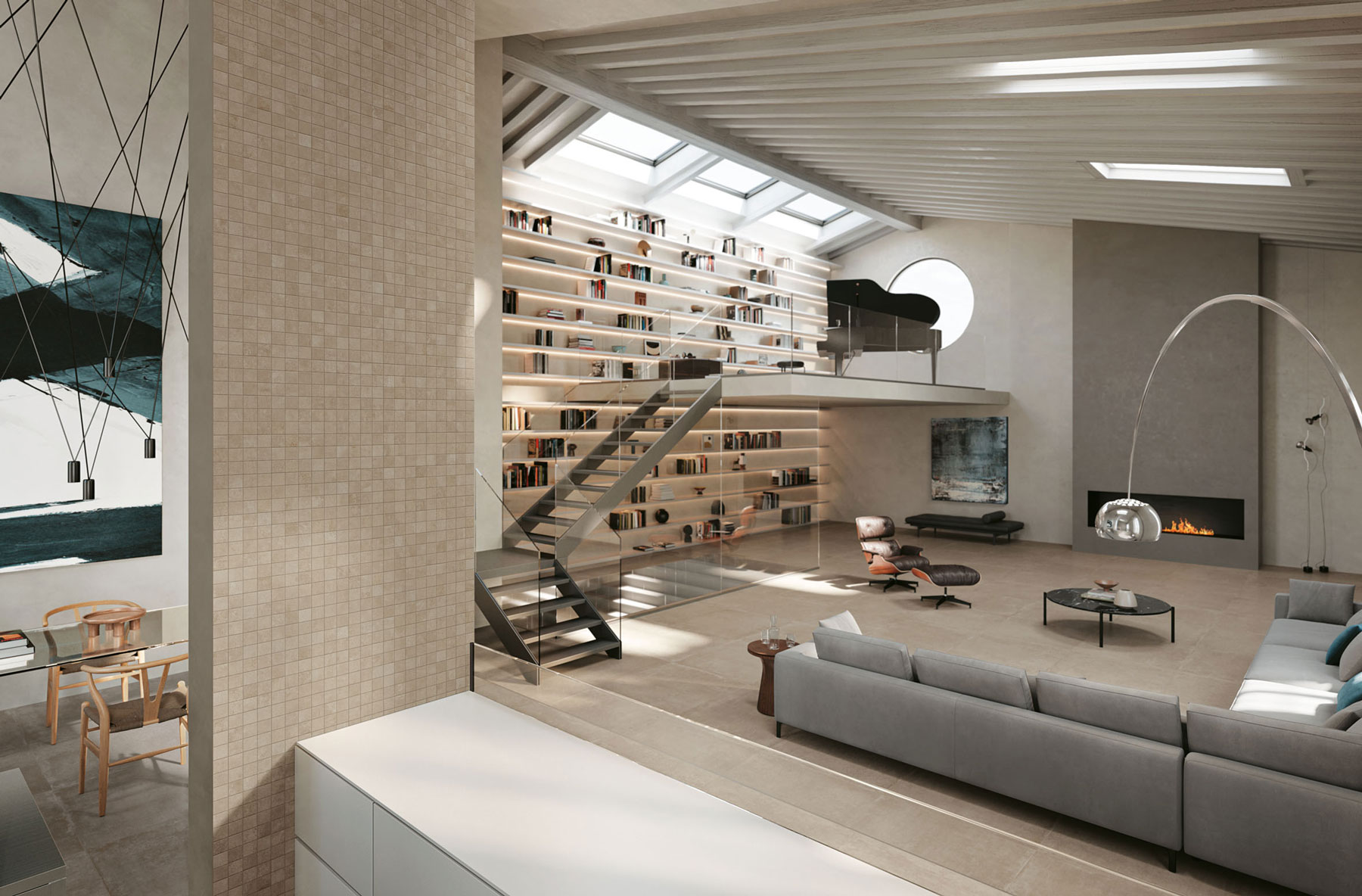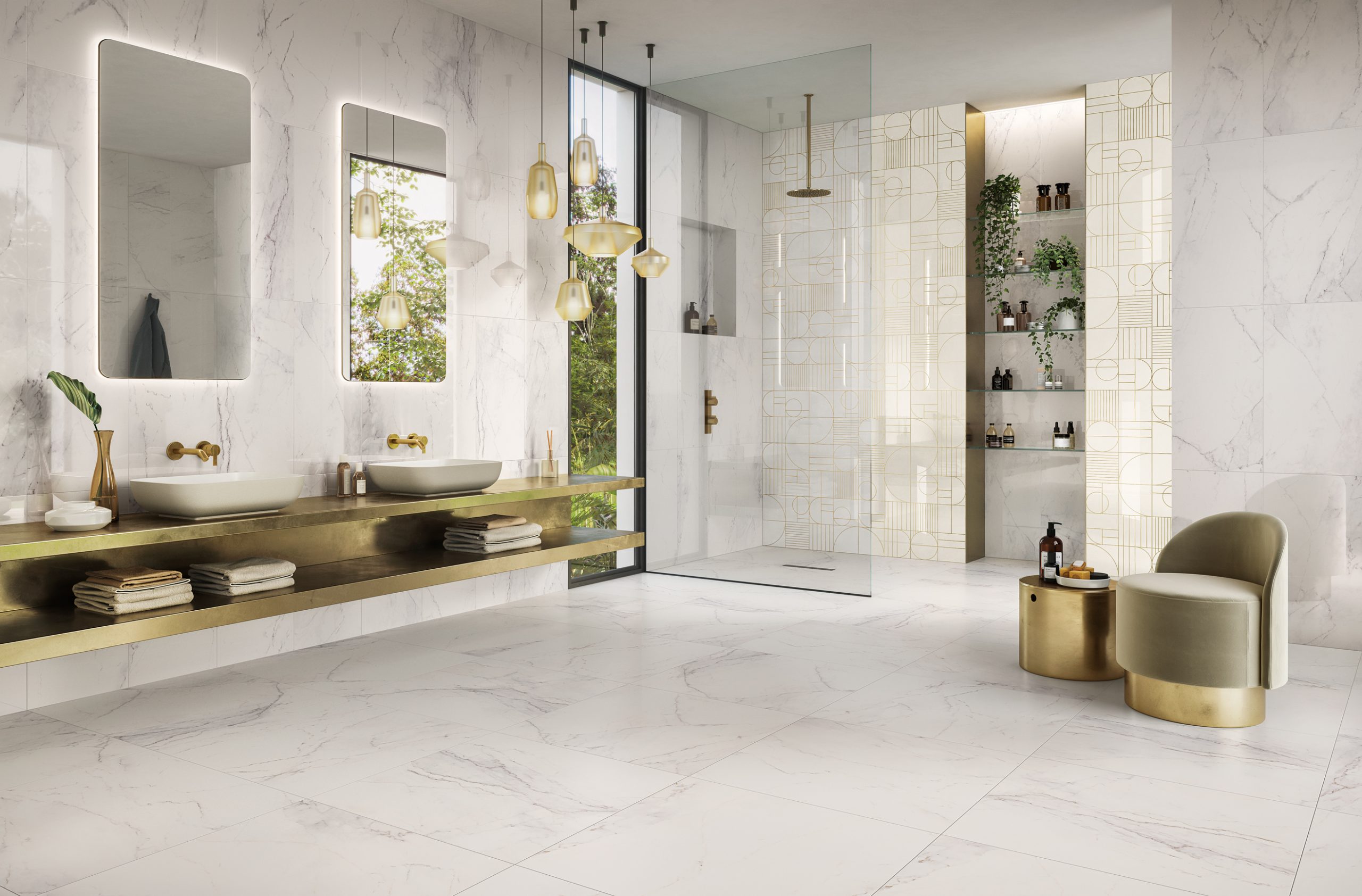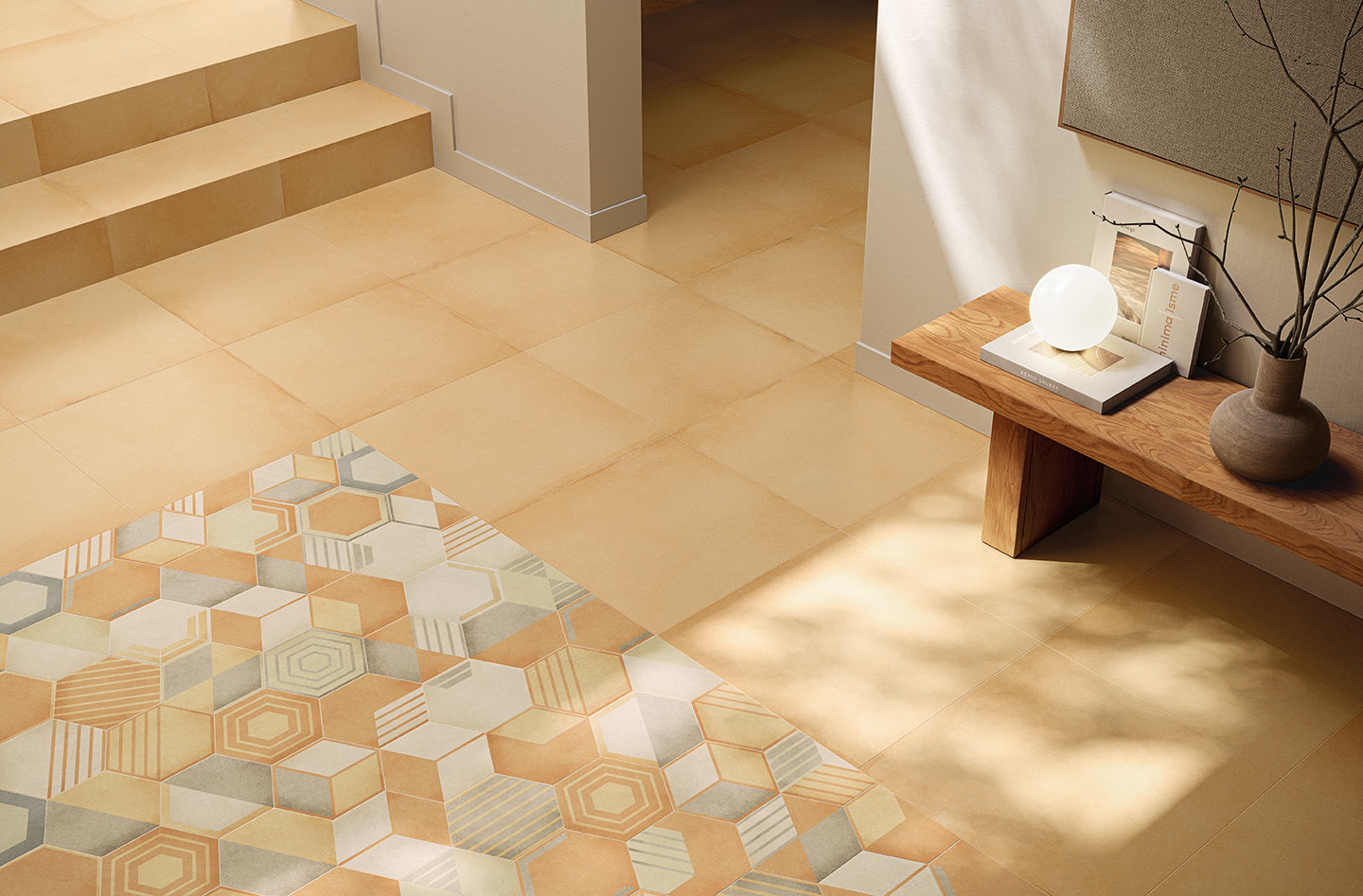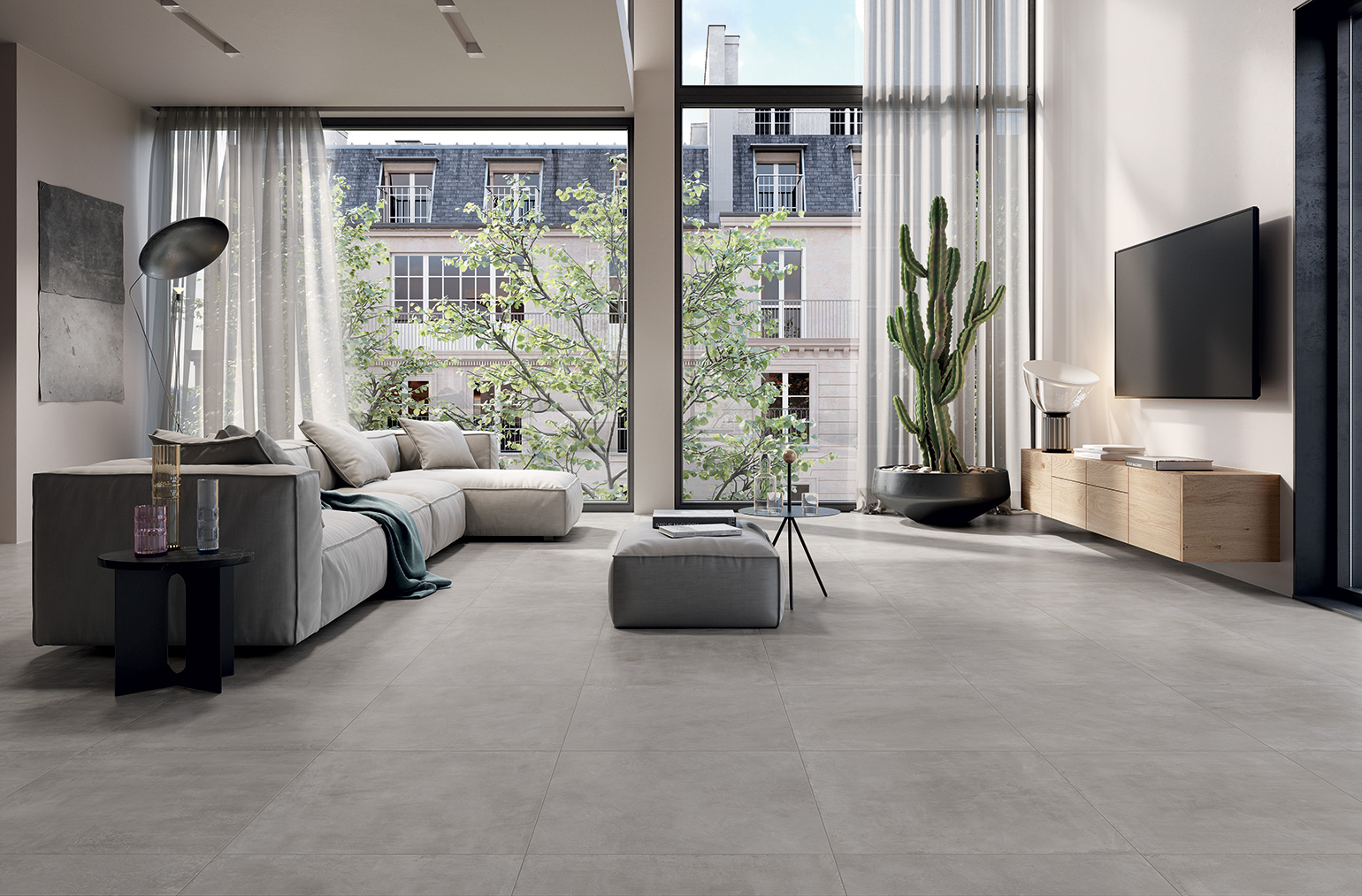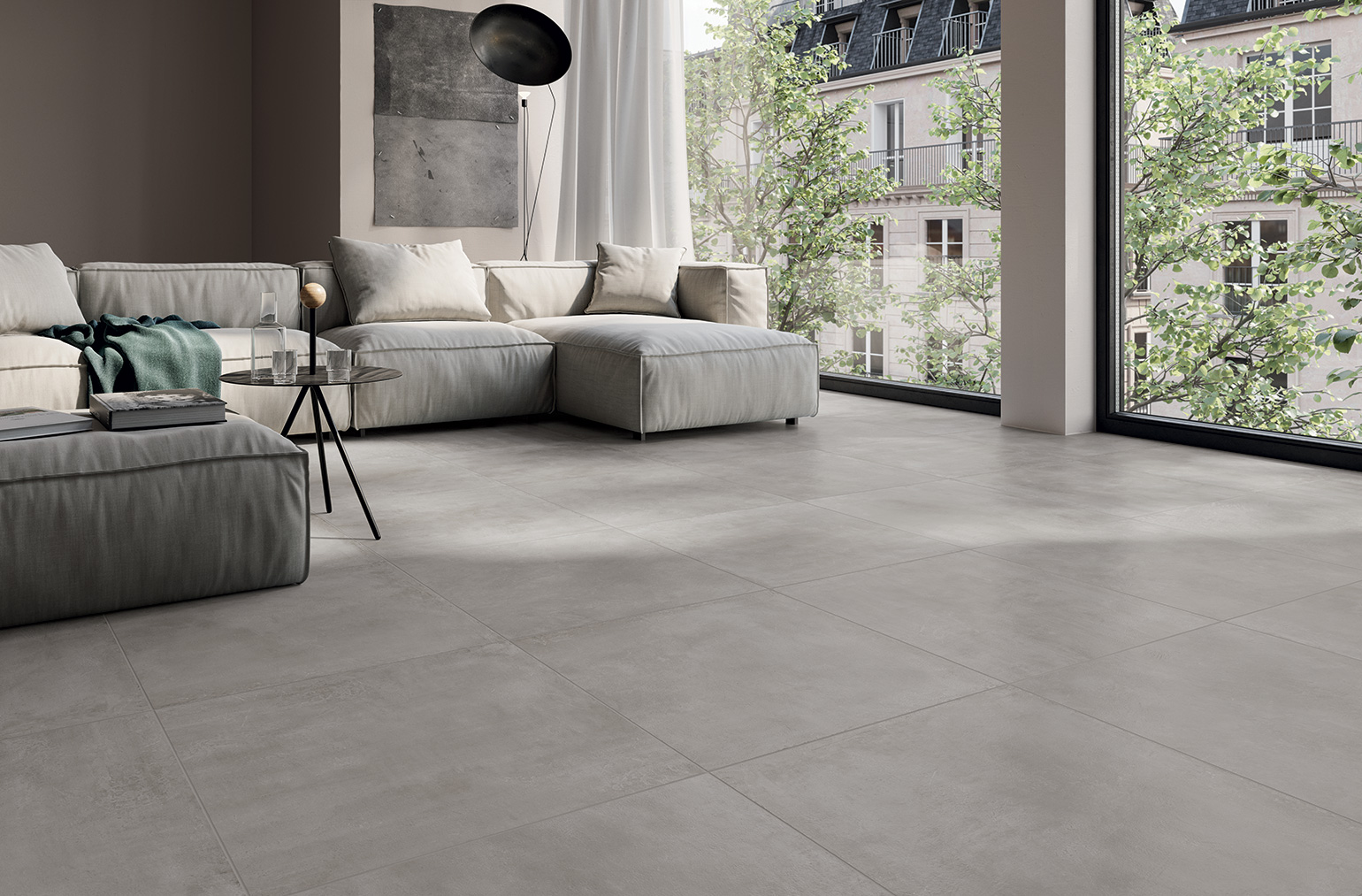Are you looking for an aesthetic and functional solution for your interior staircase? Look no further than NOVOCERAM porcelain stoneware tiles. Made from high-quality materials, these tiles not only offer exceptional strength, but also the ability to transform the ambience of a space by adding character and personality.
Stair tiling
The effects of stair tiles
Stair tiles offer a wide variety of options in terms of size, shape, style and colour. Porcelain stoneware is particularly recommended because of its exceptional resistance to wear, impact and chemicals, making it an ideal choice for staircases subject to heavy traffic.
When it comes to styles and finishes, tiles can create different effects and add character to your staircase. For example, you can opt for NOVOCERAM wood-effect tiles to add natural warmth and a Scandinavian feel. If you prefer a modern industrial style, dark-coloured tiles such as black or anthracite grey, with finishes that imitate concrete or metal, can be an interesting choice.
For a retro look, black or white metro-style tiles can be used to add a vintage touch to your staircase. If you’re looking for a more sophisticated, timeless look, marble-effect tiles can add classic elegance. You can also opt for graphic patterns or mosaic tiles to create unique and original settings.
Safety and style with stair nosings
When choosing tiles for your staircase, safety is just as important as aesthetics. Stair nosings are specially designed parts for ceramic staircases. They offer an additional solution for ensuring the safety of your staircase. Made from tiles with a rounded edge and grooves, they provide anti-slip properties.
Stair nosings cover the depth of the tread without creating protruding points. Usually made with normal tiles, you also have other options at your disposal, including stair nosings with a half-round, quarter-round or straight edge. However, bear in mind that a straight edge may look contemporary, but can also present an increased risk in the event of a fall.
In addition to stair nosings, safety standards provide valuable guidance for making the right choice. Classifications such as R (for slipperiness with footwear), ABC (for slipperiness with bare feet), UPEC (for resistance to wear, impact and chemical abrasion) and PEI (for abrasion resistance of outdoor tiles) provide safety criteria to take into account when making your selection.
The advantages of porcelain stoneware for a staircase
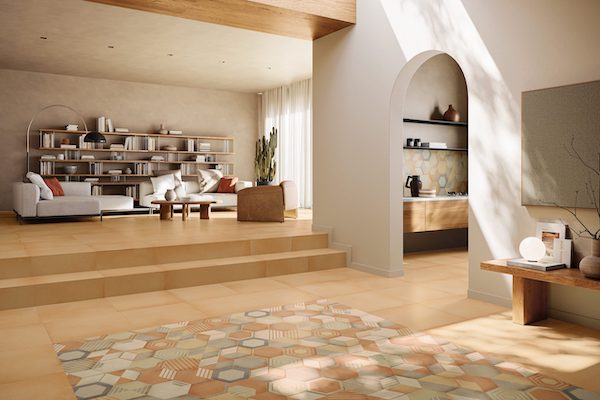
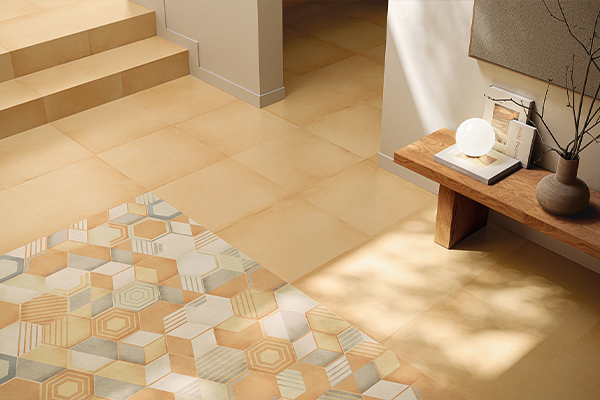
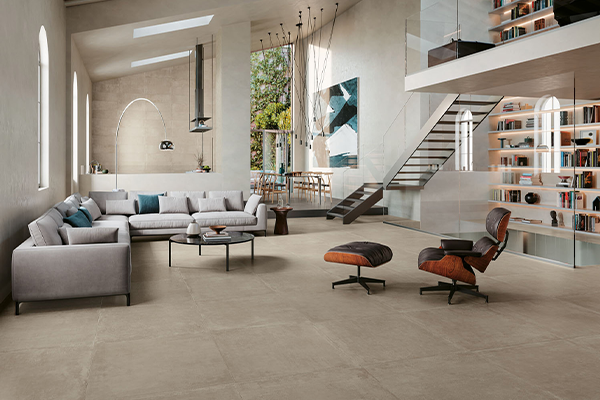
Choosing porcelain stoneware tiles for your interior staircases offers a number of advantages:
- It has water-repellent properties thanks to its dense, impermeable structure, preventing water absorption and moisture problems.
- Its high chemical inertia and low reactivity mean it can withstand cleaning with aggressive chemical agents without being damaged.
- It is a material that is non-toxic to the human body and environmentally friendly, made from natural elements.
- It is fire-resistant and electrically non-conductive, providing extra protection in the event of fire and increased safety against electrical hazards.
- It is easy to maintain and clean, simply requiring the use of hot water and a cloth.
- It is highly resistant to wear and mechanical damage, enabling it to retain its original appearance even under demanding conditions over a long period.
In addition to these many advantages, porcelain stoneware tiles offer a wide range of styles and finishes to suit all tastes. What’s more, large-format tiles now allow you to cover your steps with a single tile, without the need for joints.
FAQ indoor staircase
Find out the answers to the most frequently asked questions about interior staircases below.
Is it possible to tile a wooden or metal interior staircase?
Only concrete staircases can be tiled, excluding wooden or metal staircases. So if you want a tiled staircase, opt for a house with a concrete staircase or have one built. Although a straight staircase is easier to tile, all types of concrete staircase are suitable.
For spiral staircases or staircases with special configurations, it’s best to call in our professional tilers. Their expertise guarantees quality work and a long-lasting finish. Note that labour costs may be higher for spiral or winding staircases.
How can I bring light to my dark staircase?
To brighten up a dark staircase, opt for light colours for the walls and steps. Opt for tiles with a glossy finish, which will reflect the light and create a brighter atmosphere. You can also play with relief effects by choosing tiles in relief, which will capture and diffuse light more dynamically.
For a more intimate atmosphere, use dark, warm colours such as deep brown or charcoal grey and add light fittings along the staircase to create warm spots of light.
What are the current design trends for tiled interior staircases?
Tiling offers a variety of finishes and decorative possibilities for staircases, with options such as imitation wood, varied patterns and shiny effects. Customisable with original installations and tile mixes, it can be used to create unique staircases reflecting different styles.
Current trends include the use of large-format tiles, graphic patterns and imitations of materials such as concrete, stone or marble. These trends make it possible to create aesthetically appealing and modern interior tiled staircases.
How can I soften the presence of an imposing staircase?
These tips can help to make an imposing staircase look more harmonious in a space and give it a lighter feel:
- Coordinate the tiling on the staircase with that on the floor to create visual continuity.
- Opt for a plain, neutral colour to make the staircase more discreet.
- Use a suitable tile format to reduce the number of joints and achieve a smoother appearance.
- Add an attractive banister to attract attention and detract from the solid appearance of the staircase.
How can I optimise my stair tiling installation?
For perfect stair tiling, call in a NOVOCERAM expert. Install the stair nosings correctly to ensure the safety of the staircase. Start gluing the tiles, preferably at the top of the staircase if it is being used during installation.
For staircases with rounded corners, start by tiling the riser and then apply water-repellent cement. Wait for it to dry before laying the step tiles. Different types of tiled skirtings can be used to complete your staircase, such as straight skirtings, coved skirtings and heel skirtings.
Staircase designs
At NOVOCERAM, we offer a wide range of porcelain stoneware tiles specially designed for interior staircases. With our tiles, you benefit from a vast choice of styles, colours and finishes to create a unique and personalised staircase that perfectly complements your interior. For inspiration, take a look at some of the projects in which our porcelain stoneware tiles have been successfully used, creating pleasant, aesthetically pleasing spaces.
